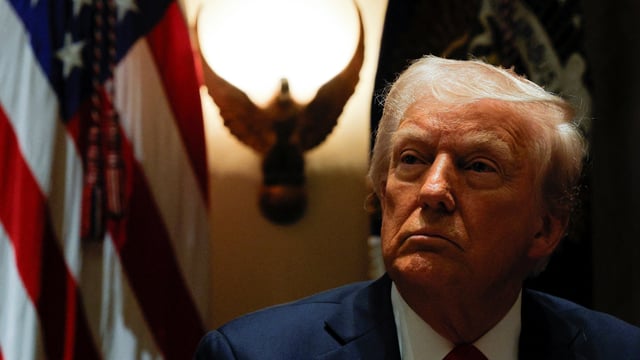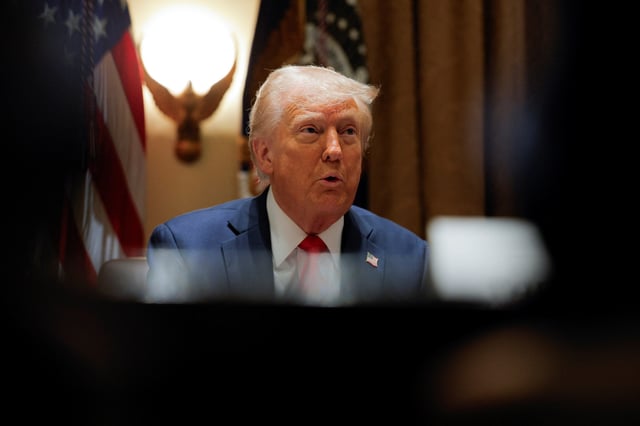Overview
- President Trump announced plans to impose a 25% tariff on European Union imports, particularly targeting cars and other goods.
- The move marks a shift in U.S. trade policy, as Trump adopts a less confrontational approach toward China while escalating tensions with the EU.
- Economic experts warn that higher tariffs could lead to inflation and increased costs for both American and European consumers.
- The European Union has vowed to respond firmly to protect its businesses and consumers, though internal divisions may complicate coordinated retaliation.
- The U.S. and EU maintain significant trade ties, with the EU being a major consumer of U.S. goods and services, making the potential fallout from these tariffs far-reaching.



